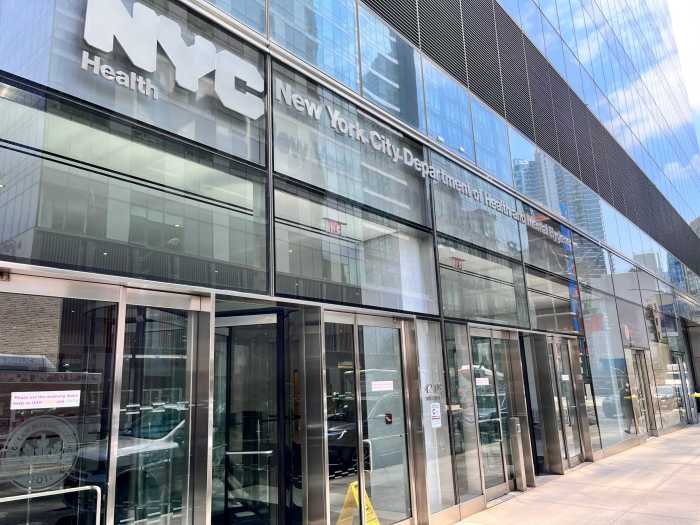 “Lighting” up in restaurants, bars or at work could be banned in Philadelphia this week. Credit: Charles Mostoller/Metro
“Lighting” up in restaurants, bars or at work could be banned in Philadelphia this week. Credit: Charles Mostoller/Metro
Either way, the air may clear on Thursday.
Electronic cigarette smokers could find out this week whether their devices will be allowed inside bars and restaurants, or if they will be forced to take them outside.
The City Council will vote on a bill that would tack the electronic devices onto the existing smoke-free law, and add another bill that would ban the sale of e-cigarette devices and supplies to minors.
Electronic cigarettes are battery-powered devices that burn a nicotine-based liquid that is vaporized and then inhaled. While electronic cigarettes are not a tobacco-based product, they do contain the stimulant nicotine.
Since the Food and Drug Administration has not yet regulated the product, the contents of the liquid are still questionable, said City Councilman Bill Greenlee, who is the main sponsor of the bills.
Without the proper regulation, e-cigarettes are a public health matter, he added.
“We don’t think it’s right [to let users to smoke them indoors] given that there are still a lot of questions about what this product emits,” he said. “There are all kind of guesses as to what goes into these things, but there are no documented facts about what products are in the vapor.
“I think what we’re talking about here is erring on the side of caution,” he added.
Jason Healy, president of e-cigarette company blu eCigs, argues that his devices emit no tobacco smoke, ash, tar or smell.
He conceded that it is partly true that nicotine does form the addiction to tobacco products, “but if it was the entire picture, then we would have an issue out here with gums and patches, which, by the way, deliver far more nicotine than even a cigarette.”
“So, it’s the whole ecosystem of smoking that is the equation,” he said.
Greenlee admitted that these devices are not as dangerous as tobacco.”Because we don’t have the proof of that,” he said. “But, we would certainly say there are enough alarms to say there could be some problems here.”
Healy said that, as was the case in other cities such as New York and Los Angeles, city officials are making decisions with “little to no information.”
“And they’re basing these theories on conjecture and theory,” he said. “As everyone knows there is a real idealogical hatred of smoking, and because e-cigs appear to do that they get lumped into the same basket. But regardless, if God himself came down and said e-cigs are good, some people will just turn off.”
Healy called e-cigs a sheep in wolf’s clothing.
“We look and act like a cigarette, but we’re not,” he said. “But it’s also the same aspects of the product that’s what makes it successful.”
The smoke-free ban went into effect in 2007. Labeled the Clean Indoor Air Worker Protection Law, the bill banned smoking in workplaces, restaurants and bars as well as outdoor seating areas and patios at these locations, and within 20 feet of commercial building entrances.
The only exceptions are neighborhood bars that make a majority of their sales from booze.
Chris Mullins, owner of McGillin’s Olde Ale House in Center City, said he rarely sees people smoking e-cigs at the bar —maybe one or two on weekends.
“It’s so different from cigarette smoke,” he said. “It doesn’t smell. As far as we know, it’s not harmful to people. It doesn’t bother anybody. It seems like an odd thing to enact. If people think it’s a gateway to smoking real cigarettes, then I can understand that. But, there’s no second-hand vapor.”
Banned in other states
- The three largest cities in the United States — New York, Los Angeles and Chicago — have all enacted specific bans on the devices.
- About 25 states have banned the sale to minors.
- A statewide bill for Pennsylvania is working its way through the state legislature in Harrisburg.





























